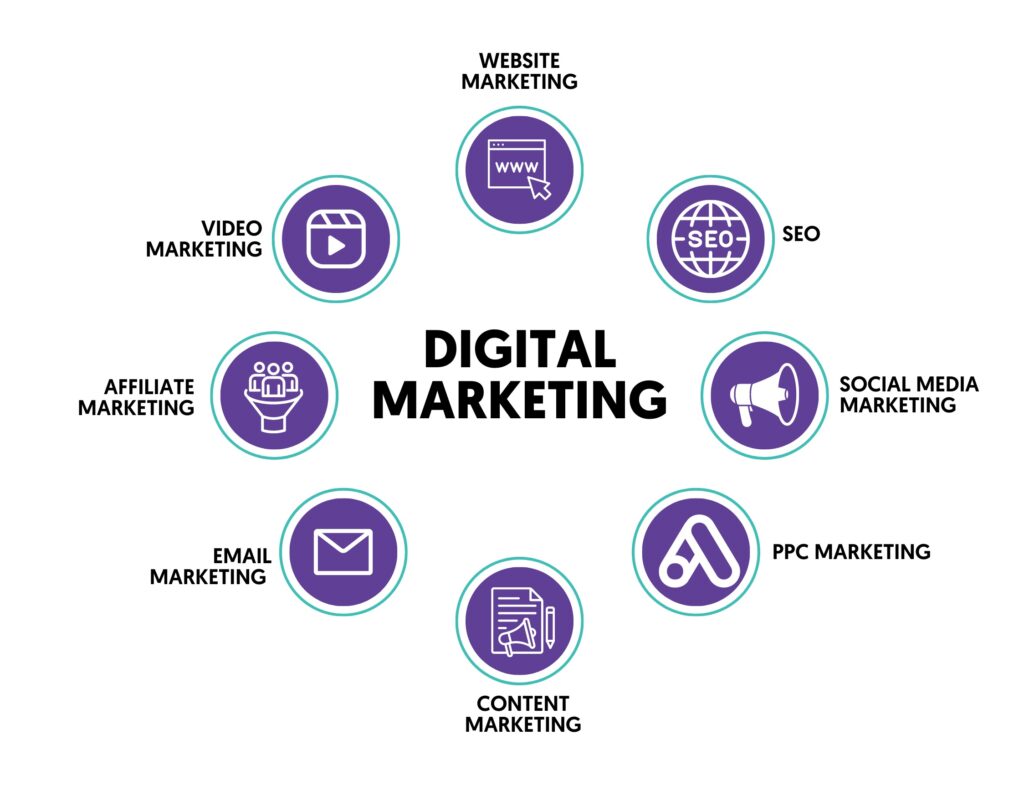By Carl Fisher

In the realm of project management, the transition from traditional methodologies to strategies that align with the digital marketing landscape represents a significant shift in approach and mindset. Traditional project management, with its structured and linear methodologies such as Waterfall and PRINCE2, has long been the cornerstone of project planning and execution in various industries. These methodologies emphasize a step-by-step process, where each phase of the project lifecycle is completed before moving on to the next, providing a clear, predictable path to project completion.
However, the rise of digital marketing, with its rapidly evolving technologies, shifting consumer behaviors, and the need for agility, challenges the applicability of these traditional approaches. The digital marketing domain demands a more dynamic, flexible, and responsive project management style. As an experienced project manager who has bridged the gap between these two worlds, I have observed and navigated the nuances and challenges that come with this transition. This article delves into why traditional project management must evolve and how it can be effectively adapted to meet the unique demands of the digital marketing landscape.
Understanding Traditional Project Management
Traditional project management has been characterized by its structured, methodical approaches, epitomized by methodologies like Waterfall and PRINCE2. These approaches are rooted in a linear progression of project phases, such as initiation, planning, execution, monitoring, and closure. Each phase has distinct objectives and deliverables, and progression to the next phase typically occurs only after the current phase is completed. This structure provides a clear roadmap for project completion, enabling thorough planning, risk assessment, and resource allocation. While this method offers predictability and control, particularly in environments with well-defined objectives and stable requirements, it may lack the flexibility needed in more dynamic contexts. In the realm of digital marketing, where rapid changes and iterative updates are the norms, the rigidity of traditional project management can be a limitation, prompting the need for more adaptive approaches.
The Digital Marketing Landscape
The digital marketing landscape is an ever-evolving domain characterized by its diversity and rapid pace of change. It encompasses a wide array of activities including Search Engine Optimization (SEO), social media marketing, content marketing, email marketing, and the use of analytics for data-driven decision making. Each of these components plays a vital role in how businesses connect with their audience online, build brand awareness, and drive sales. Unlike traditional marketing, digital marketing thrives on real-time interactions, personalization, and the ability to track and analyze consumer behavior in unprecedented detail. This dynamic environment is marked by constant technological innovations, shifting consumer trends, and the need for agility in strategy execution. The fluid nature of digital marketing, with its need for ongoing optimization and adaptation, presents unique challenges and opportunities for project management.
Adapting Project Management to Digital Marketing
Adapting traditional project management to the fluid and fast-paced world of digital marketing requires a significant shift in both mindset and methodology. Traditional approaches won’t offer much adaptation room, whether you’re a freelancer or a B2B creative agency. These are often rigid, linear, and less equipped to handle the rapid changes and iterative processes characteristic of digital marketing campaigns. This necessitates a move towards more agile methodologies that prioritize flexibility, responsiveness, and continuous improvement.
Go Agile
Agile methodology, originally developed for software development, is particularly well-suited to digital marketing. It breaks down projects into smaller, manageable segments known as sprints, each with specific goals and deliverables. This structure allows for frequent reassessment and realignment with market demands, making it possible to adapt strategies quickly in response to feedback or changing trends. This iterative approach ensures that marketing campaigns remain relevant and effective in the dynamic digital landscape.
The key to successfully implementing Agile in digital marketing lies in understanding the unique aspects of the field. Unlike traditional projects, digital marketing efforts often involve continuous testing, data analysis, and content creation. Agile allows teams to respond rapidly to analytics insights and adjust strategies accordingly, ensuring that marketing efforts are always aligned with consumer behavior and preferences.
Incorporate Digital Tools and Technologies
The integration of digital tools and technologies is critical in adapting project management to the needs of digital marketing. These tools enhance collaboration, streamline workflows, and offer valuable insights through data analytics, which are essential for informed decision-making in a rapidly changing environment.
- Collaboration platforms. Tools like Slack, Microsoft Teams, and Asana facilitate seamless communication and collaboration among team members, which is vital in a fast-paced digital environment.
- Project management software. Applications such as Gantter can help in organizing tasks, tracking progress, and managing resources effectively, aligning perfectly with Agile methodologies.
- Analytics and data tools. Google Analytics, SEMrush, and Adobe Analytics provide critical insights into consumer behavior and campaign performance, enabling data-driven decision-making.
- Content management systems (CMS). Platforms like WordPress, HubSpot, and Drupal are essential for managing and optimizing digital content, a core component of digital marketing.
- Social media management tools. Tools like Hootsuite, Buffer, and Sprout Social assist in scheduling posts, analyzing social media engagement, and managing multiple social media channels efficiently.
- Email marketing platforms. Services like Mailchimp, Constant Contact, and SendGrid offer solutions for creating, sending, and analyzing email marketing campaigns.
- SEO tools. Ahrefs, Moz, and Google Search Console are crucial for optimizing websites and content for search engines, an integral part of digital marketing.
By effectively leveraging these tools, project managers can ensure that their teams remain agile, data-informed, and cohesive, even in the face of rapid market changes and technological advancements. They can also consider using a WordPress form builder plugin for their website to create engaging forms for better data collection. The use of such technologies not only enhances efficiency but also provides a competitive edge in the highly dynamic field of digital marketing.
Strategies for Effective Adaptation
Effectively adapting traditional project management to the dynamic realm of digital marketing requires a blend of strategic thinking, continuous learning, and technological integration. As project managers, we must champion these strategies to ensure our teams are not just keeping pace, but excelling in this digital era.
- Fostering a Culture of Flexibility and Continuous Learning
The digital marketing landscape is constantly evolving, so teams must be adaptable and open to learning. Encourage an environment where trying new tactics, experimenting with different strategies, and learning from both successes and failures is the norm. Regular training sessions, workshops, and exposure to the latest digital marketing trends are crucial. This not only keeps the team updated but also fosters a mindset that is receptive to change and innovation.
- Emphasizing Training and Skill Development
In the digital world, the proficiency of your team in using the latest tools and techniques can make a significant difference. Invest in training programs that cover the latest trends in digital marketing, such as data analytics, SEO, content marketing, and social media strategies. Secure experienced project managers to handle mentoring and coaching your employees. All this ensures that your team is not only proficient in using these tools but also understands how to integrate them effectively into your project management approach.
- Adopting a Data-Driven Approach
Data is the lifeblood of digital marketing. Encourage decision-making based on data analysis rather than intuition. Utilize tools that provide insights into market trends, consumer behavior, and campaign performance. This data-driven approach allows for more accurate targeting, effective strategy adjustments, and improved project outcomes.
- Integrating Cross-Functional Teams
Digital marketing thrives on collaboration between skills – from creative to analytical. Create a collaborative environment where these diverse teams can work in unison. Ensure clear communication, align goals, and leverage each member’s strengths. This integration leads to more innovative solutions and a cohesive approach to projects.
- Implementing Agile Project Management
Agile methodology is especially effective in digital marketing due to its flexibility and focus on iterative progress. Implement Agile practices such as regular sprints, stand-ups, and retrospectives. This ensures that projects are adaptable and can quickly pivot based on market feedback or internal evaluations.
- Utilizing Technological Advancements
Stay abreast of technological advancements and integrate them into your project management practices. From AI-driven analytics tools to advanced CRM systems, technology can greatly enhance efficiency and provide deeper insights, helping you stay ahead in the competitive digital marketing space.
- Prioritizing Customer-Centric Strategies
In digital marketing, the end consumer’s experience and feedback are crucial. Incorporate customer feedback mechanisms into your project management process. This not only helps in tailoring campaigns to the audience’s needs but also ensures that the projects remain aligned with market expectations.
By implementing these strategies, project managers can effectively lead their teams through the complexities of digital marketing, ensuring that projects are not only completed efficiently but also deliver maximum impact in the digital arena.
Challenges and Solutions
Adapting traditional project management to digital marketing is not without its challenges. A significant hurdle is the resistance to change, often encountered within teams and organizational structures accustomed to conventional methodologies. Overcoming this necessitates strong leadership, where a top-down commitment to embracing new approaches is demonstrated. Training and communication are key here, as they help in demystifying new methods and showcasing their benefits.
Another challenge is maintaining alignment among diverse teams, each with different skills and perspectives. Regular team meetings, clear communication protocols, and shared project management tools are essential in fostering cohesion.
Keeping pace with the rapidly evolving digital landscape is also daunting. This can be mitigated by cultivating a culture of continuous learning and adaptability, ensuring that the team remains agile and informed about the latest trends and tools in digital marketing.
The Future of Project Management in Digital Marketing
As we look towards the future, project management within the sphere of digital marketing is poised for transformative changes, driven by technological advancements and evolving market dynamics. Emerging technologies like artificial intelligence (AI) and machine learning are set to play a pivotal role, offering new ways to analyze data, predict trends, and automate tasks. This integration will not only enhance efficiency but also provide deeper, actionable insights, enabling more precise targeting and personalization in marketing strategies.
The role of project managers is also expected to evolve. The focus will increasingly shift towards strategic leadership and facilitation, guiding teams through complex digital landscapes and ensuring they are equipped with cutting-edge knowledge and tools. Emphasis will be on fostering innovation, agility, and cross-functional collaboration.
Moreover, as digital marketing becomes more integrated with emerging technologies like virtual reality and augmented reality, project managers will need to adapt and manage projects that span beyond traditional digital channels. The future of project management in digital marketing is about embracing change, driving innovation, and continuously learning to stay ahead in an ever-evolving field.
Conclusion
In conclusion, the adaptation of traditional project management to the rapidly evolving digital marketing landscape is not just a necessity but a strategic imperative. This transition calls for a flexible, data-driven approach, leveraging the latest technologies and methodologies suited to the dynamic nature of the digital world. As project managers, embracing this change is pivotal to leading our teams effectively, ensuring that marketing strategies are not only relevant but also impactful in this digital age. The future of project management in digital marketing is exciting and promising, filled with opportunities for innovation and growth. It is an ever-evolving journey that requires continuous learning, adaptability, and a forward-thinking mindset.

 Bantter Blog
Bantter Blog